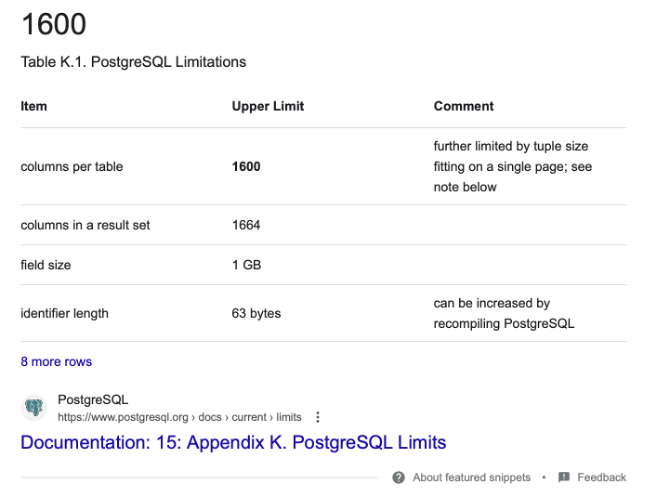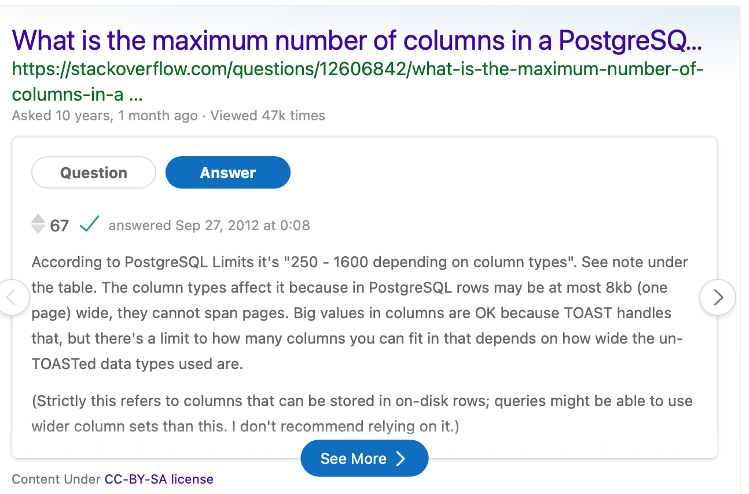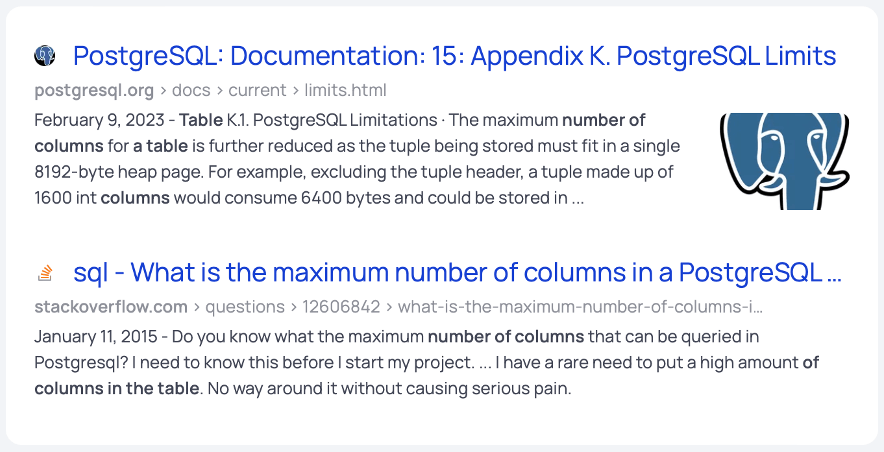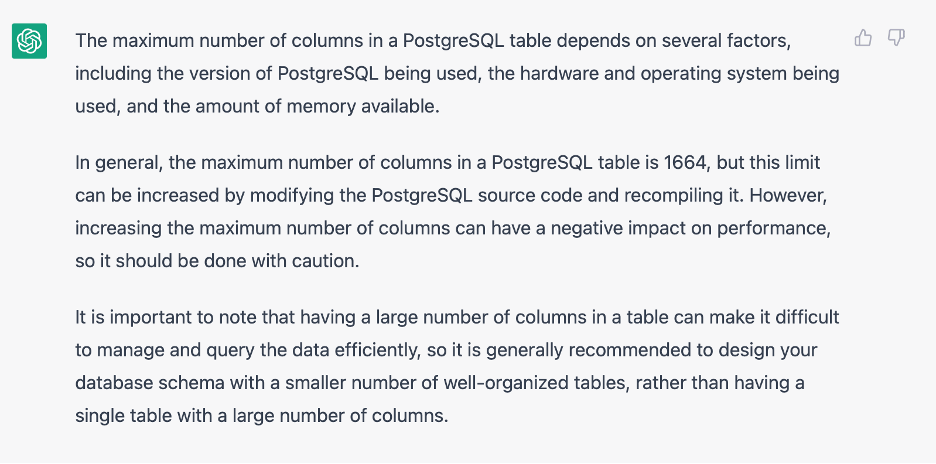
Finding Answers to Your Programming Questions
We all search the web for answers to our programming questions. Sometimes the answers are more engineering in nature, but sometimes it’s something simple.
For example, how many columns can you put into a single table in SQL Server? The correct answer: 1,024.
This led me to wonder how many columns you can put into a single table in PostgreSQL. The answer is more than 1,600, but really in the same ballpark.
I got the answer by entering this into Google: “postgres max number of columns in a table”. The response was fast, and Google impressed me by giving me the answer and effectively citing their work.
With all the talk around AI, I decided to try some other search options to see how they do. Below are the results.
Google did a great job of displaying the actual answer front and center. I didn’t have to parse anything to find it.

Bing
Bing linked to a Stack Overflow article with the answer of 1,600 columns.

Brave
This gave us the answer quickly, linking to PostgreSQL docs and Stack Overflow.

DuckDuckGo
Here, the first link was to PostgreSQL documentation.

DuckDuckGo also had a link to Stack Overflow.
Stack Overflow
This site did an okay job with the search. Ironically, using another search engine and letting it find the answer in Stack Overflow might be easier.
ChatGPT
With all the talk about ChatGPT, I decided to try it. Ironically, it was the slowest and the only one with a wrong answer. Instead of the correct 1,600, it stated 1,664 (the maximum number of columns in a PostgreSQL results set). It provided good guidance that you should avoid getting close to these crazy numbers of columns in a table.

It’s interesting to see how individual search engines did with these results. For all the talk and improvements in this space, Google provided the fastest and correct answer.



